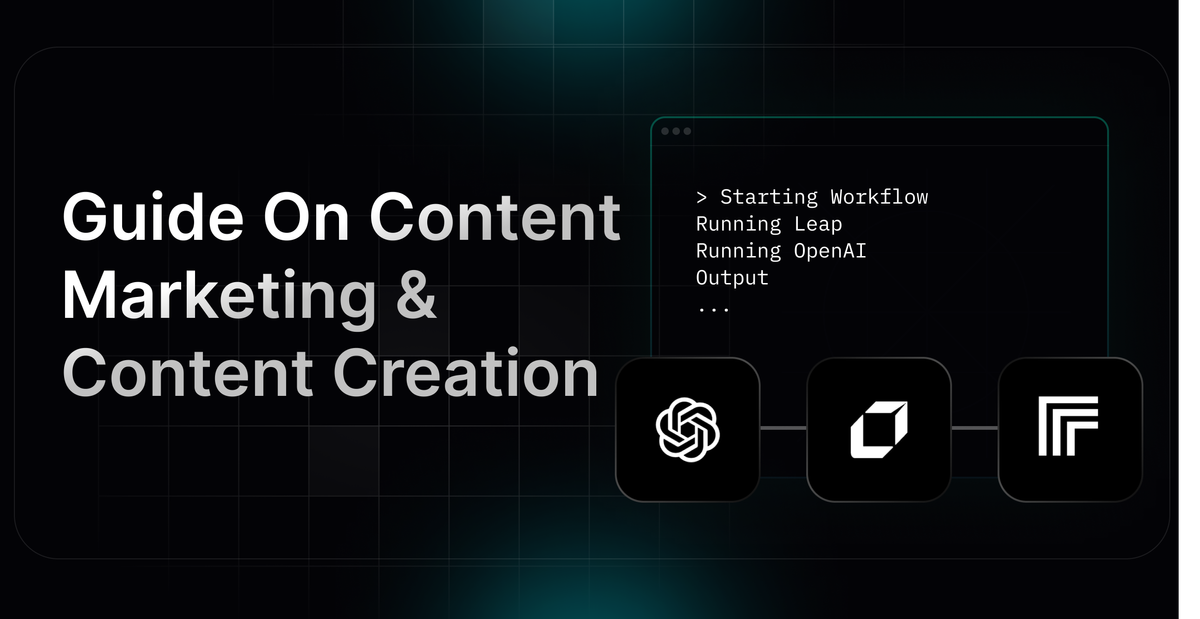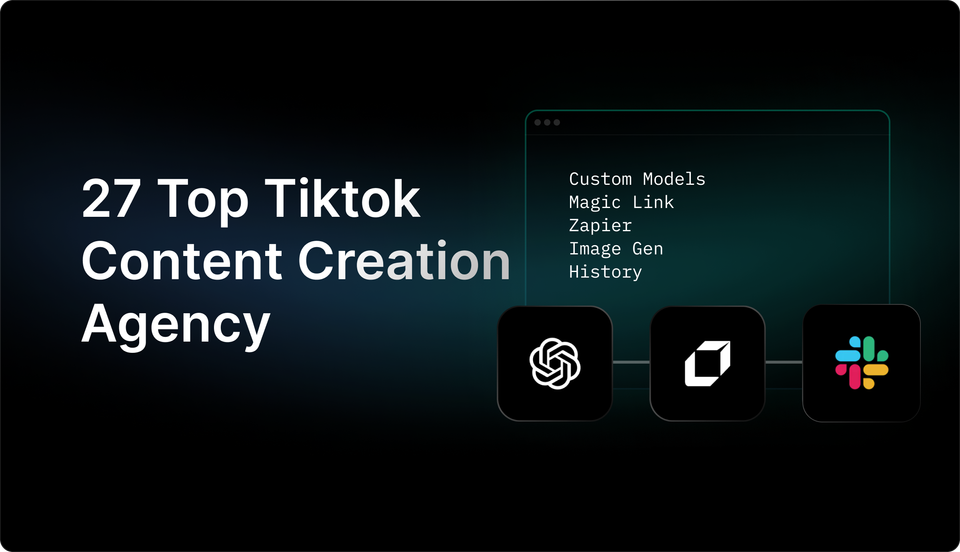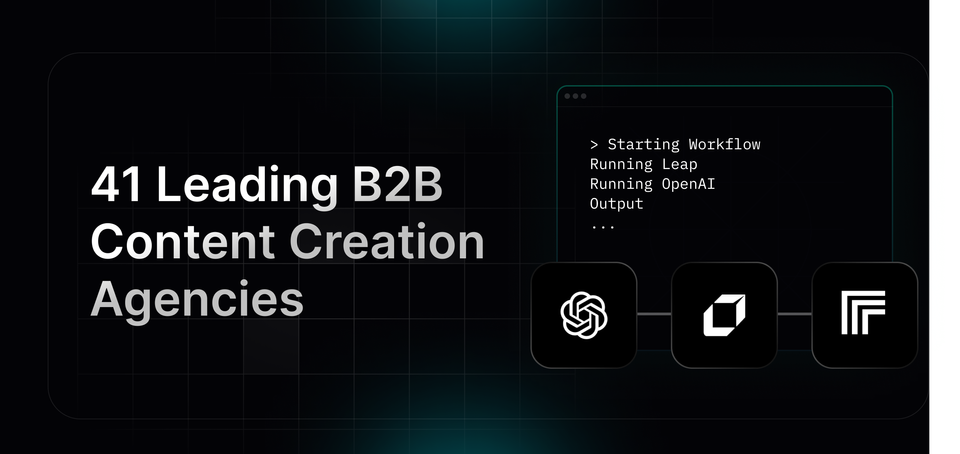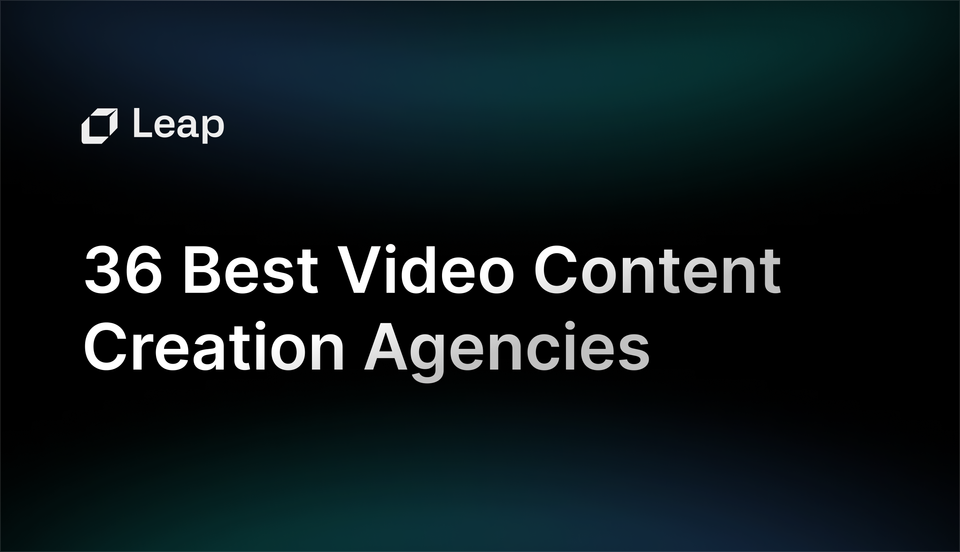Simple Guide On Content Marketing & Content Creation (19 Timeless Tips)
Craft compelling content with expertise! Elevate your brand through strategic content marketing content creation. Drive success today.

If you're a content marketer, you know that creating engaging, high-quality content is the key to success. But with so much noise online, how do you ensure that your content stands out from the crowd? That's where the art of content creation comes in. In this blog, we'll explore the ins and outs of content marketing content creation and share tips and strategies to help you produce compelling and effective content that resonates with your target audience.
Whether you're a seasoned content creator or just starting out, this blog will provide you with valuable insights to elevate your content creation game. So, let's dive into the world of content creation and unlock the secrets to captivating your audience with your content marketing efforts.

What Is Content Marketing Content Creation?

Content marketing content creation plays a pivotal role in establishing a strong online presence for businesses. It involves the strategic planning, development, and implementation of valuable and relevant content to attract, engage, and convert target audiences. Through various media channels, businesses utilize content marketing content creation to deliver their brand message, educate consumers, and build lasting relationships.
Creating Engaging Content to Attract Audiences
Content marketing content creation is the art of crafting captivating and persuasive content that captures the attention of potential customers. It involves understanding the target audience's needs, aspirations, and pain points to tailor the content accordingly. By employing storytelling techniques, incorporating visual elements, employing persuasive language, and utilizing search engine optimization (SEO) techniques, businesses can create content that resonates with their target audience and compels them to take action.
Developing Valuable and Relevant Content
To succeed in content marketing, the content must provide value to the audience. Creating valuable and relevant content requires in-depth research, industry knowledge, and a deep understanding of the target audience. By conducting market research, analyzing consumer trends, and staying up-to-date with industry news, businesses can create content that addresses their audience's challenges, provides solutions, and positions the brand as an authority in the field.
Diversifying Content Types and Formats
Content marketing content creation is not limited to blog posts and articles; it encompasses a wide range of content types and formats. Businesses can leverage various mediums such as videos, infographics, podcasts, webinars, and social media posts to engage with their audience. By diversifying content types and formats, businesses can cater to different learning styles and preferences, ensuring that their message reaches a broader audience.
Adopting a Strategic Approach
Effective content marketing content creation requires a strategic approach. It involves developing a content marketing strategy that aligns with the business's goals and objectives. This strategy includes defining target audience personas, setting clear content goals, establishing a content calendar, and measuring and analyzing the performance of the content. By taking a strategic approach, businesses can ensure that their content efforts are focused, consistent, and tailored to achieve the desired outcomes.
Emphasizing Brand Consistency and Authenticity
Content marketing content creation also revolves around maintaining brand consistency and authenticity across all platforms. Businesses must establish a strong brand voice and tone that aligns with their values and resonates with their target audience. By consistently delivering content that reflects the brand's personality and values, businesses can build trust and credibility with their audience, fostering lasting relationships.
Content marketing content creation is a dynamic process that requires creativity, research, and strategic planning. By crafting engaging, valuable, and relevant content that aligns with the brand's objectives and targets the right audience, businesses can establish a strong online presence, drive customer engagement, and ultimately boost their bottom line.
Related Reading
- Artificial Intelligence Content Creation
- Video Content Creation
- Facebook Content Creation
- Content Creation Process
- Content Creation Examples
- Content Creation Strategy
- Content Creation Ideas
- Social Media Content Creation
- Ai Content Creation

19 Timeless Tips On Content Marketing Content Creation

1. Understand Your Audience
Before creating any content, take the time to understand your target audience. Conduct research to identify their preferences, needs, and pain points.
2. Define Your Goals
Clearly define your content marketing goals. Are you aiming to increase brand awareness, generate leads, or drive sales? Align your content creation strategy accordingly.
3. Develop a Content Strategy
Create a comprehensive content strategy that outlines the types of content you will create, how often you will publish, and the channels you will use to distribute your content.
4. Research Keywords
Conduct keyword research to identify the words and phrases your target audience is using to search for information related to your industry. Optimize your content accordingly to improve search engine visibility.
5. Craft Engaging Headlines
Create attention-grabbing headlines that pique the interest of your audience and entice them to click and read your content. Use strong action words and pose compelling questions.
6. Tell a Story
Humans are wired to respond to stories. Incorporate storytelling elements into your content to captivate and engage your audience on an emotional level.
7. Provide Value
Ensure that your content provides value to your audience. Educate, entertain, or inspire them with useful and relevant information. Solve their problems and address their pain points.
8. Use Visuals
Visual content such as images, videos, and infographics can enhance the effectiveness of your content. Use visuals to break up text, make complex concepts easier to understand, and create a more engaging experience.
9. Optimize for SEO
Incorporate relevant keywords naturally into your content to improve its search engine visibility. Use meta tags, alt tags, and descriptive URLs to optimize your content for SEO.
10. Keep it Concise
In today's fast-paced world, people have limited attention spans. Keep your content concise and to the point. Eliminate fluff and unnecessary details.
11. Format for Readability
Use subheadings, bullet points, and short paragraphs to make your content easier to scan and read. Break up text with images and white space to improve readability.
12. Create Evergreen Content
While staying current is important, strive to create evergreen content that remains relevant and valuable over time. This will increase its longevity and potential for ongoing engagement.
13. Utilize Content Repurposing
Repurpose your existing content into different formats to reach a wider audience. Convert blog posts into videos, infographics, or podcast episodes to extend your content's reach.
14. Incorporate User-Generated Content
Encourage your audience to create and share content related to your brand. User-generated content can increase engagement, build trust, and provide social proof.
15. Leverage Influencer Marketing
Collaborate with influencers in your industry to amplify your content's reach. Partnering with influencers can help you tap into their loyal following and gain credibility.
16. Encourage Social Sharing
Make it easy for your audience to share your content on social media platforms. Include social sharing buttons and craft compelling social media captions to encourage sharing.
17. Monitor and Analyze
Regularly monitor and analyze the performance of your content. Identify what is resonating with your audience and adjust your content strategy accordingly.
18. Engage with Your Audience
Encourage comments, respond to feedback, and engage with your audience. Building a relationship with your audience can foster loyalty and encourage repeat engagement.
19. Test and Iterate
Don't be afraid to experiment and test different content formats, topics, and approaches. Use data and feedback to iterate and improve your content over time.
The Power of AI Automation
Leap helps you automate your work with the power of AI. Partnered with Zapier, Vercel, and more, Leap enables you to supercharge your work by allowing you to create custom AI automations. Create sophisticated AI automations with no-code. Connect the tools you love with best-in-class AI text, image, and audio models.
Supercharge your existing tools with seamless AI integrations to OpenAI, Microsoft, and more. From summarizing documents to voice translation, to AI call transcription, to AI avatar and asset generation, to SEO automation, automate anything with Leap Workflows. The opportunities for automation are endless with Leap workflows. Try Leap's AI Workflows tool for free today.
The Importance of Content Marketing for Businesses

Content marketing has become an essential strategy for businesses looking to establish their online presence, engage with their target audience, and drive conversions. This marketing approach revolves around creating and sharing valuable, relevant, and consistent content to attract and retain a clearly defined audience.
1. Building Brand Awareness and Credibility
Content marketing allows businesses to showcase their expertise, knowledge, and unique value proposition to their target audience. By consistently creating high-quality content that addresses their audience's pain points, businesses can position themselves as thought leaders and industry experts. This not only helps to build brand awareness but also establishes credibility and trust among potential customers.
2. Increasing Website Traffic
A well-executed content marketing strategy can significantly increase website traffic. By creating and promoting valuable content, businesses can attract more visitors to their website through various channels like search engines, social media platforms, and email marketing campaigns. This increased traffic not only improves brand visibility but also creates opportunities for lead generation and sales.
3. Enhancing Search Engine Optimization
Content marketing and SEO go hand in hand. Producing high-quality, keyword-rich content helps businesses improve their search engine rankings, making it easier for potential customers to find them online. By optimizing their content for relevant keywords, businesses can attract organic traffic and increase their visibility in search engine results pages (SERPs).
4. Engaging and Nurturing the Audience
Content marketing focuses on delivering valuable and relevant content that resonates with the target audience. By creating informative and entertaining content that addresses their pain points, businesses can engage and establish an emotional connection with their audience. This engagement fosters trust, loyalty, and long-term relationships with customers, helping businesses to nurture their leads and convert them into paying customers.
5. Generating Leads and Conversions
Content marketing has proven to be an effective lead generation tool. By providing valuable information and solutions to their audience, businesses can capture leads and cultivate relationships with potential customers. By strategically placing call-to-action (CTA) buttons or forms within their content, businesses can guide their audience through the buyer's journey, ultimately leading to more conversions and sales.
6. Differentiating from Competitors
In today's competitive marketplace, businesses need to find ways to stand out from their competitors. Content marketing allows businesses to showcase their unique brand voice, values, and offerings. By consistently creating and distributing valuable content, businesses can differentiate themselves from competitors, attract their target audience, and establish a loyal customer base.
Content marketing is crucial for businesses as it helps build brand awareness and credibility, increase website traffic, enhance search engine optimization, engage and nurture the audience, generate leads and conversions, and differentiate from competitors. By investing in a well-planned content marketing strategy, businesses can effectively reach and engage their target audience, ultimately driving growth and success in the digital landscape.
Key Elements of An Effective Content Marketing Strategy

Creating a successful content marketing strategy requires careful planning and consideration of various key elements. These elements work together to ensure that your content resonates with your target audience and helps you achieve your marketing goals. Let's explore these key elements below.
1. Audience Analysis
Understanding your target audience is crucial for crafting content that appeals to them. Conduct thorough research to identify their demographics, interests, pain points, and preferences. This knowledge will guide your content creation process and help you tailor your messaging to meet their needs.
2. Goal Setting
Clearly define your content marketing goals. Whether it's increasing brand awareness, driving website traffic, generating leads, or nurturing customer relationships, your goals will shape your content strategy and determine its success.
3. Content Planning
Develop a well-thought-out content plan that aligns with your goals and resonates with your audience. This includes determining the types of content you will create (blogs, videos, infographics, etc.), the topics you will cover, and the platforms you will use to distribute your content.
4. SEO Optimization
Incorporating search engine optimization (SEO) techniques into your content is essential for driving organic traffic to your website. Conduct keyword research and optimize your content with relevant keywords, meta tags, headers, and alt text. This will improve your search engine rankings and make it easier for your target audience to find your content.
5. Compelling Storytelling
Great content tells a story that captivates and engages the reader. Develop a unique brand voice and narrative style that resonates with your audience. Use storytelling techniques to create an emotional connection and make your content memorable.
6. Quality and Consistency
Delivering high-quality content consistently is vital. Ensure that your content is well-researched, accurate, and provides value to your audience. Establish a content calendar and stick to a regular publishing schedule to maintain your audience's interest and trust.
7. Distribution and Promotion
Creating great content is not enough; you need to actively promote it to reach your audience. Utilize various distribution channels such as social media, email marketing, guest blogging, and influencer partnerships to maximize your content's visibility and reach.
8. Analyzing and Iterating
Regularly analyze the performance of your content to gain insights into what works and what doesn't. Track metrics like website traffic, engagement, conversions, and social media shares to measure the effectiveness of your content. Use this data to make informed decisions and iterate your content marketing strategy for continuous improvement.
By considering these key elements and implementing them effectively, you can develop a robust content marketing strategy that drives results and helps you achieve your marketing objectives. Content marketing is an ongoing process that requires constant monitoring, analysis, and adaptation to stay ahead of the curve.
Exploring the Versatility of Leap AI Workflows
Leap helps you to automate your work with the power of AI. Partnered with Zapier, Vercel, and more, Leap enables you to supercharge your work by allowing you to create custom AI automations. Create sophisticated AI automations with no-code. Connect the tools you love with best-in-class AI text, image, and audio models.
Supercharge your existing tools with seamless AI integrations to OpenAI, Microsoft, and more. From summarizing documents, to voice translation, to AI call transcription, to AI avatar and asset generation, to SEO automation, automate anything with Leap Workflows. The opportunities for automation are endless with Leap workflows. Try Leap’s AI Workflows tool for free today.
How To Measure The Success of Your Content Marketing Efforts
When it comes to content marketing, businesses need to have a clear understanding of how their efforts are performing in order to make informed decisions and optimize their strategies. Here are some key metrics and methods that can be used to measure the success of content marketing:
1. Website Traffic
One of the primary goals of content marketing is to drive traffic to a website. Monitoring the number of visitors, unique visitors, and pageviews can provide insights into the effectiveness of content in attracting and engaging audiences. Analyzing the sources of traffic can reveal which content channels are most effective in driving visitors to the website.
2. Conversion Rates
Content marketing should ultimately lead to conversions, whether it's in the form of newsletter subscriptions, lead generation, or product purchases. Tracking conversion rates allows businesses to evaluate the effectiveness of their content in driving desired actions. A high conversion rate indicates that the content is resonating with the target audience and motivating them to take the desired action.
3. Engagement Metrics
Monitoring engagement metrics such as time spent on page, bounce rate, and social media shares can provide valuable insights into how well the content is capturing and retaining the attention of the audience. High engagement indicates that the content is valuable, relevant, and engaging, while low engagement may indicate a need for improvement.
4. Brand Awareness
Content marketing can also be used to increase brand awareness and visibility. Tracking metrics such as social media mentions, brand mentions, and search engine rankings can help businesses assess the impact of their content on brand recognition and visibility.
5. Customer Feedback
Collecting feedback from customers through surveys, reviews, and comments can provide qualitative insights into the effectiveness of content marketing efforts. Positive feedback indicates that the content is resonating with the audience and meeting their needs, while negative feedback can highlight areas for improvement.
6. Return on Investment (ROI)
Businesses need to assess the financial impact of their content marketing efforts. Calculating the ROI involves comparing the costs of content creation and distribution with the generated revenue or other desired outcomes. This analysis allows businesses to determine the effectiveness and efficiency of their content marketing strategies.
By regularly tracking and analyzing these metrics, businesses can gain a comprehensive understanding of the success of their content marketing efforts. This information can then be used to refine strategies, optimize content, and drive even greater results.
The Power of AI Automation with Leap Workflows
Leap helps you to automate your work with the power of AI. Partnered with Zapier, Vercel, and more, Leap enables you to supercharge your work by allowing you to create custom AI automations. Create sophisticated AI automations with no-code. Connect the tools you love with best-in-class AI text, image, and audio models. Supercharge your existing tools with seamless AI integrations to OpenAI, Microsoft, and more.
From summarizing documents, to voice translation, to AI call transcription, to AI avatar and asset generation, to SEO automation, automate anything with Leap Workflows. The opportunities for automation are endless with Leap workflows. Try Leap’s AI Workflows tool for free today.
The Importance of Storytelling In Content Marketing Content Creation

Storytelling is a powerful tool in content marketing content creation, as it helps to captivate and engage audiences, create emotional connections, and convey key messages in a memorable way. By using storytelling techniques, content marketers can effectively communicate their brand's values, mission, and unique selling propositions to their target audience.
1. Creating Emotional Connections
Storytelling has the ability to evoke emotions in readers, making them feel connected and engaged with the content. When content marketers incorporate relatable characters, compelling narratives, and personal anecdotes into their content, they can establish a strong emotional bond with their audience. This emotional connection helps to build trust and loyalty, making customers more likely to engage with the brand and become advocates.
2. Making Complex Concepts Accessible
Content marketers often need to explain complex or technical concepts to their audience. By using storytelling techniques, they can break down these concepts into relatable and understandable narratives. Through stories, content marketers can simplify complex information, making it more accessible and engaging for their readers. This approach allows the audience to grasp the key messages and retain the information for longer periods.
3. Enhancing Brand Identity and Values
Storytelling is an effective way to communicate a brand's identity, values, and mission to the audience. By crafting stories that align with the brand's core principles and beliefs, content marketers can establish a strong brand identity and differentiate themselves from competitors. These stories help to humanize the brand, making it more relatable and trustworthy in the eyes of the consumers.
4. Encouraging Engagement and Sharing
People love to share stories that resonate with them. By creating compelling and shareable content, content marketers can increase brand visibility and reach a wider audience. When readers feel connected to a story, they are more likely to share it with their friends, family, and social media networks. This organic sharing not only increases brand awareness but also generates valuable word-of-mouth marketing.
5. Driving Conversions and Sales
Storytelling can also play a crucial role in driving conversions and sales. By incorporating narratives that highlight the benefits and unique features of a product or service, content marketers can influence purchase decisions. Stories that focus on real-life scenarios, customer testimonials, or case studies can help potential customers visualize how the product or service can solve their problems or fulfill their needs.
Storytelling is an essential component of content marketing content creation. It helps to create emotional connections, simplify complex concepts, enhance brand identity, encourage engagement and sharing, and drive conversions and sales. By using storytelling techniques effectively, content marketers can create memorable and impactful content that resonates with their target audience.
Related Reading
- Ugc Content Creation
- Content Creation Seo
- Content Marketing E Commerce
- Content Creation Workflow
- Ai Social Media Content Creation
- Content Creation Tips
- B2b Content Creation
- Content Creation For Instagram
- Ai Video Content Creation
- How To Use Chatgpt For Content Creation
- Content Creation Ideas For Youtube
- Content Creation Ideas For Tiktok
- Content Creation Ideas For Instagram
Create Game Changing Automations Today With Leap’s AI Workflows
Creating engaging and high-quality content is the backbone of any successful content marketing strategy. The process of content creation can be time-consuming and resource-intensive. That's where Leap comes in to revolutionize your content creation process with the power of AI.
Automating Workflows with Leap
Leap offers a wide range of AI-powered workflows that can streamline and automate various aspects of content creation. Whether you need to summarize documents, translate voice recordings, transcribe calls, generate AI avatars and assets, or automate SEO tasks, Leap has you covered.
With Leap Workflows, you can create custom AI automations without any coding knowledge. By connecting the tools you already use with best-in-class AI text, image, and audio models, you can supercharge your existing workflows and eliminate repetitive tasks.
Seamless Integration with Your Favorite Tools
Leap has partnered with leading platforms like Zapier and Vercel to ensure seamless integration with the tools you love. Whether you're using OpenAI or Microsoft services, Leap can effortlessly integrate with these platforms, allowing you to leverage the power of AI to enhance your content creation process.
Supercharge Your Content with AI
Imagine being able to generate high-quality blog posts, social media captions, or video scripts in a fraction of the time it would take manually. With Leap's AI models, you can do just that. By harnessing the power of natural language processing, Leap can analyze large volumes of text and generate coherent and engaging content.
But Leap doesn't stop at text generation. With its AI image and audio models, you can create visually stunning graphics and generate voiceover scripts with ease. Whether you're looking to enhance your blog posts with eye-catching visuals or create professional-grade podcasts, Leap can be your go-to tool.
The Endless Opportunities of Automation
The possibilities for automation with Leap Workflows are truly endless. Whether you're a marketer, content creator, or business owner, you can benefit from automating repetitive tasks and freeing up valuable time and resources. From content ideation and creation to distribution and optimization, Leap can take your content marketing efforts to new heights.
Try Leap's AI Workflows for Free Today
Ready to supercharge your content creation process? Why not give Leap's AI Workflows tool a try? With a free trial, you can experience the power of AI automation firsthand and see how it can transform your content marketing efforts.
Don't let manual content creation hold you back. Embrace the future of content marketing with Leap and unlock a world of possibilities. Try Leap's AI Workflows tool for free today and take your content creation to the next level.
Related Reading
- Content Creation Tools
- Content Creation Agency
- Content Creation Software
- Automated Content Creation
- Ai Tools For Content Creation
- Social Media Content Creation Services
- Social Media Content Creation Agency
- Best Content Creation Apps
- Seo Content Creation Services
- Digital Content Creation Tools
- Social Media Content Creation Tools
- Video Content Creation Agency
- B2B Content Creation Agency
- Tiktok Content Creation Agency
- Content Creation Marketing Agency




